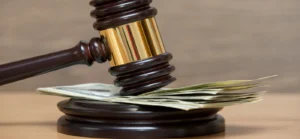For those who suffer injuries in Alabama because of someone else’s negligence, the legal system is a crucial pathway for recovering compensation and justice. Unfortunately, some individuals abuse this system by filing frivolous lawsuits. These baseless claims not only waste time and resources but also undermine the credibility of legitimate cases.
At Nomberg Law Firm, we understand the frustration and confusion that can arise when you find yourself targeted by such a lawsuit. Our experienced personal injury attorneys are adept at identifying and addressing frivolous claims, offering reliable counsel and a robust defense to protect your interests and uphold the integrity of the legal process.
If you’re facing a frivolous lawsuit in Birmingham, reach out to Nomberg Law Firm today to schedule a free consultation to protect your rights and discuss your legal options.
What is a frivolous lawsuit?
A frivolous lawsuit refers to a legal claim or action that lacks any serious purpose or value, often brought without sufficient grounds or evidence to support its claims. These lawsuits are typically intended to harass or burden the other party rather than to achieve a legitimate legal outcome.
The term “vexatious litigation” is closely associated with frivolous lawsuits and describes legal actions that are brought, regardless of their merits, solely to harass or subdue an adversary. Such lawsuits can be a drain on judicial resources and can unfairly burden the party being sued, often necessitating a legal defense against claims that have no factual or legal foundation.
These types of lawsuits can be recognized by their lack of substantial evidence, their inability to present a legally valid claim, or their clear intention to cause inconvenience or harassment.
Courts often dismiss these claims promptly and can impose penalties or sanctions on the party that files them as a way to discourage such abuse of the legal system.
Why do people file frivolous lawsuits?
People file frivolous lawsuits for a variety of reasons, often driven by motivations other than seeking legitimate legal redress. Some common reasons include:
- Financial gain. Some individuals or entities might file frivolous lawsuits in the hope of receiving a financial settlement. They may count on the defendant preferring to settle out of court rather than incurring the costs of a lengthy legal battle.
- Harassment or vengeance. In some cases, frivolous lawsuits are filed as a means of harassing or exacting revenge on someone. The intent is not to win the case but to cause inconvenience, stress and financial strain to the defendant.
- Publicity. Individuals or organizations sometimes file baseless lawsuits to draw attention to themselves or their cause. The media coverage of a lawsuit, regardless of its merit, can be used as a platform for publicity.
- Delay tactics. In legal disputes or broader conflicts, one party might file frivolous lawsuits to delay the resolution of the matter, using the legal process to postpone an inevitable outcome or to buy time for other strategic purposes.
- Misunderstanding of the law. Some frivolous lawsuits arise from a genuine misunderstanding of legal rights and obligations. The plaintiff might sincerely believe they have a valid claim, not realizing their case lacks legal merit.
Regardless of the reason for filing such lawsuits, the legal system often recognizes these actions as lacking merit and will typically dismiss them accordingly.
Famous examples of frivolous lawsuits
Frivolous lawsuits can range from seemingly absurd claims about misleading advertising on products to exaggerated allegations of defamation or identity confusion involving public figures. Below are a few examples of some recent frivolous lawsuits.
Pop-Tarts lawsuit
In March 2022, U.S. District Judge Marvin Aspen dismissed a proposed class-action lawsuit against Kellogg Co. concerning its Strawberry Pop-Tarts. The lawsuit, filed by plaintiff Stacy Chiappetta, claimed that Kellogg’s packaging for its Unfrosted Strawberry Pop-Tarts was misleading because the product did not contain enough strawberries. The plaintiff argued that the use of red food dye in the Pop-Tarts made the filling appear more appealing and alleged that Kellogg violated federal and state consumer protection laws.
In dismissing the case, the judge noted that the packaging, which featured the word “Strawberry” alongside an image of half a strawberry and a Pop-Tart with red filling, did not guarantee a specific amount of strawberries in the filling.
Kraft macaroni lawsuit
In November 2022, a Florida woman, Amanda Ramirez, filed a lawsuit against Kraft Heinz Foods Company for $5 million, alleging that the company’s advertising of its Velveeta Shells & Cheese as being ready in 3-and-a-half minutes was misleading.
According to the lawsuit, that time frame only accounted for the microwaving step and did not include other preparation steps like removing the lid and sauce pouch, adding water, and stirring.
The lawsuit argued that Kraft Heinz was unfairly profiting from false advertising, as customers trusted the brand and paid a premium price because of the quick preparation-time claim. The case was ultimately dismissed.
Michael Jordan look-alike lawsuit
A Portland, Oregon, man named Allen Heckard once filed a lawsuit against Michael Jordan and Nike founder Phil Knight, claiming he was tired of being mistaken for Jordan. Despite being 8 years older and shorter than Jordan, Heckard sued for defamation, permanent injury, emotional pain, and suffering, demanding a staggering $832 million in total, equally split between Jordan and Knight. This case was also eventually dismissed.
Understanding the Burden of Proof in Alabama Civil Cases
Learn how the burden of proof impacts your ability to get compensation in a personal injury case.
Is it ethical for an attorney to file a frivolous lawsuit?
No, it’s generally considered unethical for an attorney to file a frivolous lawsuit. The ethical standards for attorneys are set by legal professional bodies and bar associations, which include provisions against filing lawsuits that are without merit or intended to harass or burden the other party.
Contrary to popular belief, the vast majority of attorneys won’t take on a lawsuit that they know is frivolous for a variety of reasons, including:
- Sanctions and fines. Courts have the authority to impose sanctions and fines on attorneys who file frivolous lawsuits. These penalties are meant to discourage such conduct and compensate for the misuse of court resources.
- Reputational damage. Engaging in this behavior can harm an attorney’s reputation within the legal community, potentially impacting their career.
- Disciplinary actions by bar associations. Attorneys may face disciplinary actions from their respective bar associations, including reprimands, suspension or even disbarment for serious violations.
- Liability for the opposing party’s legal fees. In some cases, the attorney (and their client) may be held responsible for the legal fees incurred by the opposing party in defending a frivolous lawsuit.
- Civil liability. In extreme cases, filing a frivolous lawsuit could lead to civil liability if it is deemed to constitute malicious prosecution or abuse of process.
Filing a frivolous lawsuit is not only unethical but can also lead to significant professional and legal repercussions for an attorney. The legal profession encourages and expects attorneys to uphold the integrity of the legal system by refraining from engaging in such conduct.
How do you respond to a frivolous lawsuit?
Responding to a frivolous lawsuit requires careful consideration and strategic planning, usually with the assistance of a qualified attorney.
The first thing you need to understand when facing a frivolous lawsuit is that you should never ignore it. A lawsuit, frivolous or not, requires a formal response.
What happens if someone doesn’t respond to a lawsuit?
If someone doesn’t respond to a lawsuit within the specified time frame, the court may issue a default judgment against them. This means the court can decide in favor of the plaintiff (the person who filed the lawsuit) by default, granting them the compensation they seek in the lawsuit.
The defendant (the person the lawsuit was filed against) then loses the opportunity to defend themselves or present their case, and the judgment is typically enforceable as if it were a regular court decision. So, frivolous or not, it’s crucial to respond to a lawsuit promptly to avoid such consequences.
It’s also important to avoid letting emotions dictate your actions. Try to stay calm and avoid confronting the person directly until you’ve consulted with an attorney so you don’t unintentionally make the situation worse.
Questions To Ask Before Hiring a Personal Injury Lawyer
Learn what to ask so you can find the best lawyer for your case.
How an attorney can help with a frivolous lawsuit
Once you reach out to an attorney, they should be able to assist with getting the case dismissed by taking the following actions:
- Assess the case. An attorney can assess the merits of the case and whether it is indeed frivolous. Their understanding of the necessary legal standards for proving such cases will enable them to provide you with a clear analysis.
- File a response. If the case is indeed frivolous, your attorney can file the necessary court documents to respond to the lawsuit. This often includes a motion to dismiss if the case is without legal merit.
- Seek dismissal. If the case is frivolous, your attorney can argue for a dismissal on those grounds. They can present arguments and evidence to the court to demonstrate the lack of merit.
- Represent you in court. If the lawsuit proceeds, your attorney can represent you in court, providing a strong defense against the claims and advocating on your behalf. If appropriate, they can also negotiate a settlement to avoid the costs and time associated with prolonged litigation.
Throughout the process, your attorney can advise on the best legal strategy, considering both the short-term impacts and long-term consequences of any potential legal actions. Remember, the legal system can be unpredictable, and professional guidance is crucial to protecting your interests.
Can you countersue a frivolous lawsuit?
Yes, in response to a frivolous lawsuit, you may have the option to file a countersuit, which allows you to bring your own legal claims against the plaintiff. Through a countersuit, you can seek compensation for attorney’s fees, court costs and other other damages caused by the frivolous lawsuit, including emotional distress and financial losses.
It’s crucial to work with an attorney to ensure the countersuit is well-founded so you can effectively pursue appropriate legal relief.
Get help from an experienced Birmingham frivolous lawsuit defense attorney
Remember, no matter the absurdity of the claim, it’s important to take a frivolous lawsuit seriously and respond appropriately.
If you find yourself facing a frivolous lawsuit in Birmingham, you don’t have to navigate this challenging situation alone. The experienced attorneys at Nomberg Law Firm are well-versed in defending against baseless legal claims, ensuring your rights and interests are protected every step of the way.
Don’t let a frivolous lawsuit disrupt your life or business. Reach out to Nomberg Law Firm today to schedule a free consultation, and take the first step toward obtaining justice and peace of mind.


